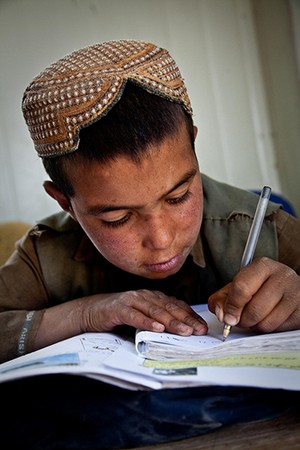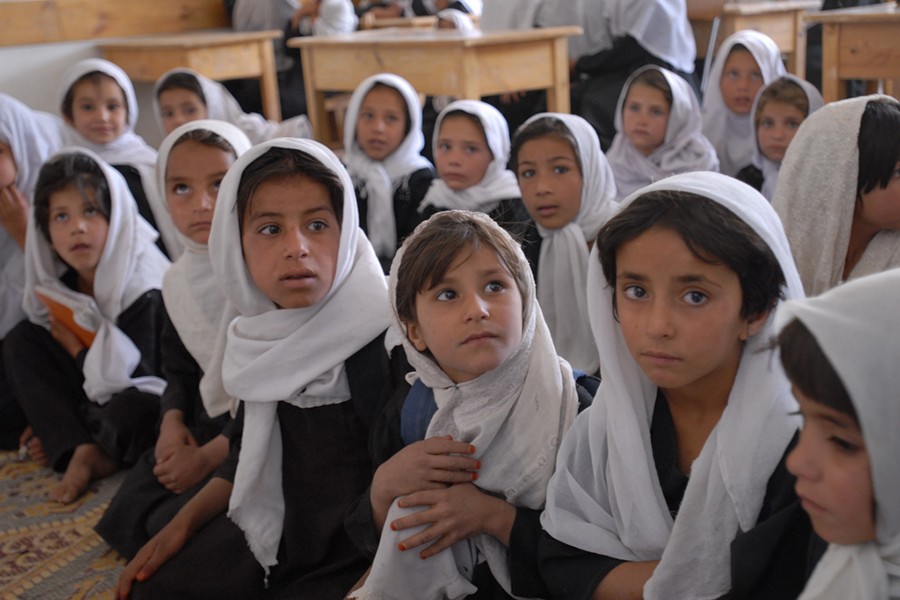In the past 15 years, Afghanistan has completely overhauled its educational system, and investments in education—the country's third highest government expenditure—are paying real dividends for its people, writes Rohullah Osmani in a commentary for The Diplomat, an international current affairs magazine.
"Education is one of Afghanistan's biggest success stories of the post-Taliban era," writes Osmani, a visiting scholar at the Johns Hopkins University School of Advanced International Studies and former director general of the Independent Administrative Reform and Civil Service Commission in Afghanistan. "This remarkable progress is the result of a combination of factors: generous assistance from the international community, prioritized support from the Afghan government and, most importantly, the Afghan people's own desire to become educated and participate in not just the rebuilding of their country but in the building of a better country."

Image caption: A student studies mathematics at the Maruf District Center School in Afghanistan
Image credit: Flickr/ DVIDSHUB
Afghanistan has shown marked improvement in both its primary and post-secondary schools, Osmani says. The country has increased primary school student enrollment tenfold, expanding from 900,000 boys in 2001 to 9.5 million students—including 3.5 million girls—in 2016. Current initiatives include building teacher capacity by providing advanced training for teachers and opening training centers in remote areas; improving gender balance of teachers by recruiting more female instructors; and investing in public and private universities, including universities that accommodate full-time and part-time students.
Signs of progress are not just in the numbers, Osmani says. The quality of education is improving, with rigorous, regular reviews of curricula and textbooks and a national literacy campaign under way in an effort to increase literacy from 38 percent to 59 percent by the year 2020.
But there are still great challenges faced by the war-torn nation. Writes Osmani:
Read more from The DiplomatFully half of Afghanistan's 32 million people are under the age of 15, and as more and more students enter school, there will be an urgent need to systematically address entrenched weaknesses in the education system. More long term planning is needed to raise the standard of teaching and curriculum in primary and secondary schools. Better on-the-job support is needed for teachers, including more training to ensure that instructors possess the necessary qualifications to teach required subjects. Many schools lack complete sets of textbooks, and school administrators often lack the ability to provide strong instructional leadership. And the government needs to do more to ensure people in rural areas aren't being left out.
Posted in Voices+Opinion, Politics+Society
Tagged education, education reform, afghanistan








